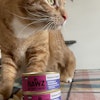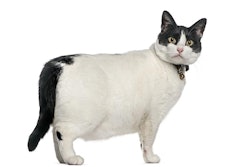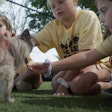
In the fall of 2018, the Department of Animal Sciences at the University of Illinois will enroll students in a new project-based Master of Animal Science program. The program is intended to serve students for whom the traditional thesis-based masters’ degree is not desired.
“We expect to have applicants who currently work in industry and want to advance their career without the time and resource demands of thesis research, for example, or baccalaureate graduates that want to continue coursework to enhance their competitiveness when applying to veterinary school or entering the job market,” said Sandra Rodriguez Zas, professor and director of graduate programs in the department.
Non-thesis Masters program requirements
The Master of Animal Science program requires a total of 32 credit hours, which can be completed in as little as two semesters or longer, depending on the needs of the student. The program requires six hours towards a capstone project that helps students understand the scientific method and develop science communication skills. This can be a research project or internship experience, in some cases initiated during the undergraduate program, that will culminate in a graded written report.
Students can work with animal sciences faculty across the many disciplines represented in the department: nutrition, genomics, reproduction, bioinformatics, microbiology, immunology, behavior, meat sciences and physiology.
“We think it will meet a need for certain people,” said Kelly Swanson, professor of companion animal nutrition in the department, in a press release. “For example, the pet food industry continues to grow steadily and is in need of people adequately trained in companion animal nutrition. Some professionals in the industry might not need the research experience, but require expertise in nutrition, diet formulation and processing, regulations, and other important aspects. Our intensive program will not only cover these topics using didactic instruction, but also will include hands-on experiences with animals in laboratories, and in feed processing/production plants, weekly seminars and journal clubs pertaining to companion animal nutrition, and personalized mentoring from some of the world’s leaders in pet nutrition."
















